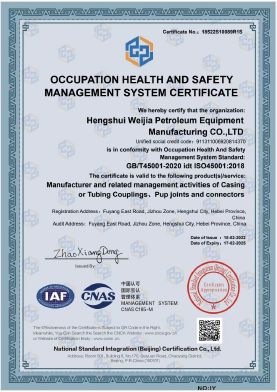- Afrikaans
- Albanian
- Amharic
- Arabic
- Armenian
- Azerbaijani
- Basque
- Belarusian
- Bengali
- Bosnian
- Bulgarian
- Catalan
- Cebuano
- Corsican
- Croatian
- Czech
- Danish
- Dutch
- English
- Esperanto
- Estonian
- Finnish
- French
- Frisian
- Galician
- Georgian
- German
- Greek
- Gujarati
- Haitian Creole
- hausa
- hawaiian
- Hebrew
- Hindi
- Miao
- Hungarian
- Icelandic
- igbo
- Indonesian
- irish
- Italian
- Japanese
- Javanese
- Kannada
- kazakh
- Khmer
- Rwandese
- Korean
- Kurdish
- Kyrgyz
- Lao
- Latin
- Latvian
- Lithuanian
- Luxembourgish
- Macedonian
- Malgashi
- Malay
- Malayalam
- Maltese
- Maori
- Marathi
- Mongolian
- Myanmar
- Nepali
- Norwegian
- Norwegian
- Occitan
- Pashto
- Persian
- Polish
- Portuguese
- Punjabi
- Romanian
- Russian
- Samoan
- Scottish Gaelic
- Serbian
- Sesotho
- Shona
- Sindhi
- Sinhala
- Slovak
- Slovenian
- Somali
- Spanish
- Sundanese
- Swahili
- Swedish
- Tagalog
- Tajik
- Tamil
- Tatar
- Telugu
- Thai
- Turkish
- Turkmen
- Ukrainian
- Urdu
- Uighur
- Uzbek
- Vietnamese
- Welsh
- Bantu
- Yiddish
- Yoruba
- Zulu
stainless pipe coupling
Understanding Stainless Steel Pipe Couplings Types, Applications, and Benefits
Stainless steel pipe couplings are pivotal components in various piping systems, providing a reliable means to join two sections of pipe. They are widely used in industries ranging from oil and gas to food processing, thanks to their durability and resistance to corrosion. This article explores the types, applications, and advantages of stainless steel pipe couplings.
Types of Stainless Steel Pipe Couplings
Stainless steel pipe couplings come in various designs to suit different application needs. The most common types include
1. Full Couplings These are simple fittings that connect two pipes of the same diameter. They are used for a straightforward connection and provide a seamless flow in plumbing and piping systems.
2. Reducing Couplings Reducing couplings are designed to connect pipes of different diameters. They allow for a smooth transition from a larger pipe to a smaller one, a common requirement in various hydraulic and pneumatic systems.
3. Socket Weld Couplings Ideal for high-pressure applications, socket weld couplings are inserted into the socket end of the pipe, making them suitable for lightweight applications where space is a constraint.
4. Threaded Couplings These couplings feature threads on both ends, allowing for easy installation and disassembly. They are commonly used in applications where frequent maintenance is required.
5. Compression Couplings Designed for quick and easy joining without soldering or welding, compression couplings compress a fitting onto the pipe using a nut and ferrule system, making them ideal for temporary or easily adjustable connections.
Applications of Stainless Steel Pipe Couplings
The strength and reliability of stainless steel pipe couplings make them indispensable in numerous applications
- Oil and Gas Industry In the oil and gas sector, stainless steel couplings are essential for transporting fuels and chemicals through pipelines. Their ability to withstand harsh conditions and resist corrosion ensures safe and efficient operations.
stainless pipe coupling

- Food and Beverage Processing Stainless steel’s non-reactive nature and hygienic properties make it the material of choice in food processing plants. Couplings used in these applications must not contaminate the food products and must withstand cleaning processes that often involve harsh chemicals.
- Pharmaceuticals Similar to food processing, the pharmaceutical industry requires a high standard of sanitation. Stainless steel pipe couplings are frequently employed in processes that manufacture and transport medicines, ensuring product integrity and safety.
- Water and Wastewater Management In municipal water systems and wastewater treatment plants, stainless steel couplings offer durability against various corrosive substances, ensuring long-lasting service life even in challenging environments.
Benefits of Using Stainless Steel Pipe Couplings
Opting for stainless steel pipe couplings provides several significant advantages
1. Corrosion Resistance The primary benefit of stainless steel is its resistance to rust and corrosion. This property extends the lifespan of the piping system and minimizes maintenance costs.
2. Strength and Durability Stainless steel couplings can withstand high pressures and extreme temperatures, making them suitable for demanding applications.
3. Hygienic Properties Stainless steel is inherently hygienic, making it ideal for systems where cleanliness is paramount, such as in the food and pharmaceutical industries.
4. Versatility Available in various designs, stainless steel couplings can meet the needs of a range of applications, from domestic plumbing to high-pressure industrial systems.
5. Aesthetic Appeal Beyond functionality, stainless steel has a sleek appearance that can enhance the aesthetic of installations, making it preferred in visible applications.
Conclusion
Stainless steel pipe couplings are an essential part of modern piping systems, offering numerous benefits in various industries. Their strength, durability, and resistance to corrosion make them a preferred choice for reliable and efficient connections. As industries continue to evolve, the role of stainless steel couplings will remain critical, ensuring that fluid transport systems operate effectively and safely.
-
Tubing Pup Joints: Essential Components for Oil and Gas OperationsNewsJul.10,2025
-
Pup Joints: Essential Components for Reliable Drilling OperationsNewsJul.10,2025
-
Pipe Couplings: Connecting Your World EfficientlyNewsJul.10,2025
-
Mastering Oilfield Operations with Quality Tubing and CasingNewsJul.10,2025
-
High-Quality Casing Couplings for Every NeedNewsJul.10,2025
-
Boost Your Drilling Efficiency with Premium Crossover Tools & Seating NipplesNewsJul.10,2025







